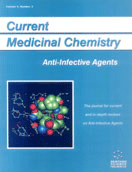Abstract
The search for potent antiviral agents is urgent in view of the dramatic situation of the global HIV / AIDS epidemic, a possible spread of avian influenza and of other viral diseases. Effective antiviral therapeutics are not available, and the presently approved therapy for HIV (HAART) has been recognized to be toxic, unable to eradicate the causative virus and to induce severe drug resistance. In this situation, more attention should be paid to the search for antiviral agents present in natural products. Marine or fresh water algae are one of the richest sources of bioactive compounds, and have only marginally been investigated. The present review summarizes the antiviral and immunomodulatory properties of algae or extracts thereof which have been investigated in numerous in vitro and animal,studies: i) for approximately four decades it has been known that sulfated polysaccharides, extracted from algae, exhibit a potent broad-spectrum antiviral activity in vitro against HIV-1, HIV-2 and a large variety of other enveloped viruses. These compounds interfere with the attachment of the virus to its target cells,thereby inhibiting virus-cell fusion i.e.the entry of the virus into its target cells , ii) cyanovirin N is a 11 kDa polypeptide ,isolated from blue-green algae, that interferes with multiple steps in the membrane fusion process associated with the entry of HIV-1 into CD4+ cells.The antiviral polypeptide also inhibits HSV-6 and measles virus in vitro, iii) sulfoglycolipids (sulfoquinovosyldiacylglycerols) were discovered in cyanobacteria . Presently several antiviral sulfoglycolipids have been isolated and their mechanism of action was shown to be an inhibition of the reverse transcriptase (RT) of HIV-1 and HIV-2, iv) The immunomodulatory properties of algae and algal compounds were known for over a decade: carrageenans and other natural or synthetic sulfated polysaccharides are potent T and B cell mitogens in vitro. In recent studies, whole cyanobacteria preparations (Spirulina), given as food, were shown in animal tests to increase phagocytic activity,increase antibody production,increase accumulation of NK cells into tissue,and to mobilize T and B cells into blood. Algae thus appear to have the potential of a novel therapy system: a combination of antiviral agents, targetting two different steps in the viral replication cycle ,plus immunostimulating agents,which may support synergistically the antiviral effects. Tests of this system in humans are urgently needed, and may provide the base for safe and efficient future antiviral therapeuticals.
Keywords: algae, cyanobacteria, antiviral agents, immunomodulatory effects, sulfated polysaccharides, sulfoglycolipids
 4
4

